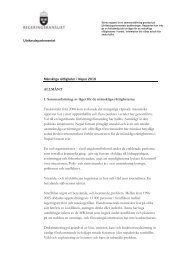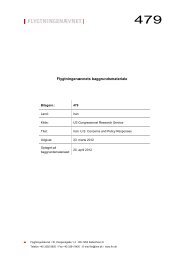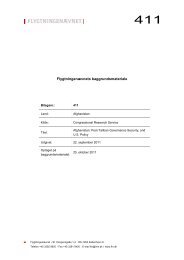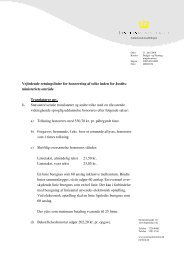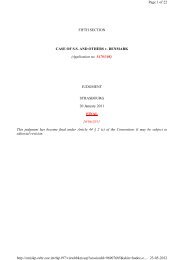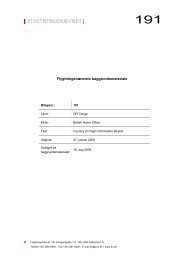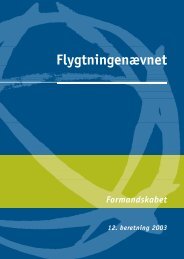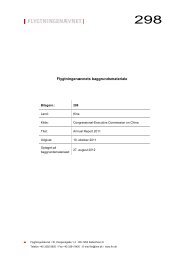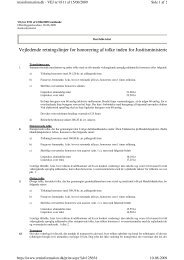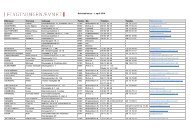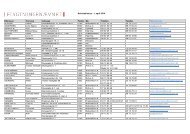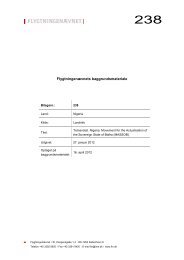Annual Report - National Human Rights Commission
Annual Report - National Human Rights Commission
Annual Report - National Human Rights Commission
Create successful ePaper yourself
Turn your PDF publications into a flip-book with our unique Google optimized e-Paper software.
Annexure 8<br />
○ ○ ○ ○ ○ ○ ○ ○ ○ ○ ○ ○ ○ ○ ○ ○ ○ ○ ○ ○ ○ ○ ○ ○ ○ ○ ○ ○ ○ ○ ○ ○ ○ ○ ○ ○ ○ ○ ○ ○ ○ ○ ○ ○ ○ ○ ○ ○ ○ ○ ○ ○ ○ ○ ○ ○ ○ ○ ○ ○ ○ ○<br />
○<br />
●<br />
A new scheme to provide a Community Health Worker in every village or habitation of<br />
the state should be launched. As part of such a scheme, in tribal areas the Community<br />
Health Worker should be operative at hamlet level. For example, in Maharashtra under the<br />
Pada Swayam Sevak scheme, the full potential of the Pada Swayam Sevaks (PSSs), in tribal<br />
districts now needs to be realized by upgrading their role as has been done in<br />
innovative projects. This may be done by ensuring substantially upgraded training,<br />
integration of curative and preventive roles and preference being given to women in the<br />
selection process.<br />
●<br />
Regarding women’s access to health care, availability of all services in a woman-friendly and<br />
sensitive manner at public health facilities must be ensured. This should include assured<br />
round-the-clock maternity services at Sub-centre and PHC level; assured emergency<br />
obstetric and neonatal care at CHC level; facility of diagnosis and treatment of Reproductive<br />
Tract Infections and of infertility; and woman-friendly, quality abortion services.<br />
Simultaneously, quality health care for women beyond reproductive health such as availability<br />
of services by women doctors; supply of iron tablets to all anaemic women irrespective of<br />
being pregnant or not; care for victims of domestic violence, and other services relevant to<br />
women’s health must be ensured.<br />
●<br />
Training of staff to increase its sensitivity to groups with special health care needs like<br />
women, children, old people, the mentally and physically challenged.<br />
●<br />
Greater sensitivity towards mentally unwell, institutionalised patients, provisions for proper<br />
counseling. Provisions for consent procedures, facilities for legal aid and measures for<br />
rehabilitation and family contact.<br />
●<br />
All coercive measures, including incentives and disincentives for limiting family size, which<br />
result in violations of human rights, must be stopped immediately.<br />
●<br />
The norms for maintaining quality of service during tubectomy operations must be strictly<br />
followed. For any violation, of these norms responsible persons must be suitably held<br />
accountable and punished. The ‘camp approach’, which often results in poor quality<br />
operative care and violation of various aspects of women’s rights, needs to be seriously<br />
reviewed immediately.<br />
The other recommendations are:<br />
1. Public Health facilities should guarantee a Health Centre within walkable distance with<br />
qualified doctors and infrastructure.<br />
2. Facility to refer patients with serious ailments to specialized hospitals including transport<br />
236<br />
<strong>National</strong> <strong>Human</strong> <strong>Rights</strong> <strong>Commission</strong> <strong>Annual</strong> <strong>Report</strong> - 2004-2005<br />
AR-Chapter-1-19-10-6-06.p65<br />
256<br />
7/17/06, 6:31 PM



